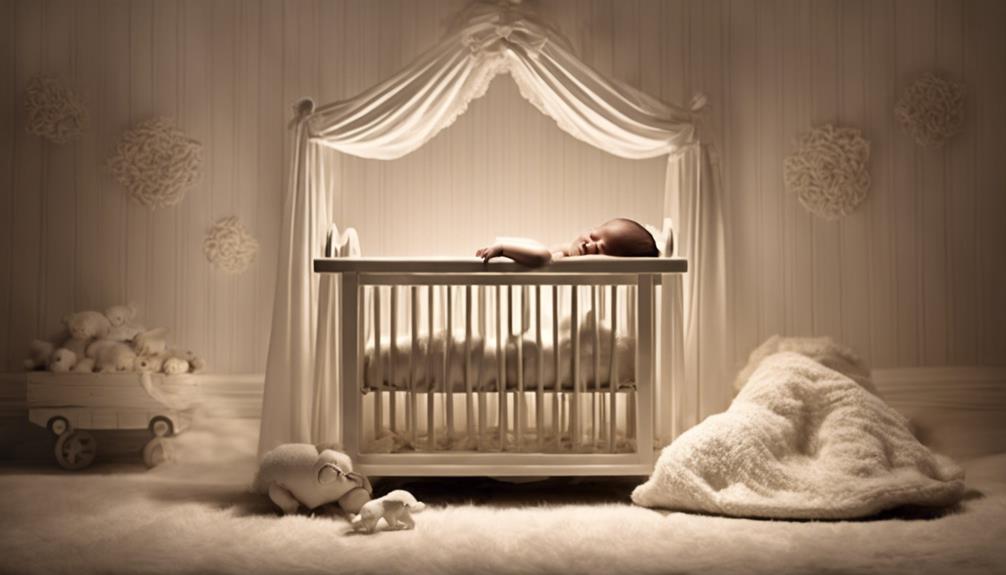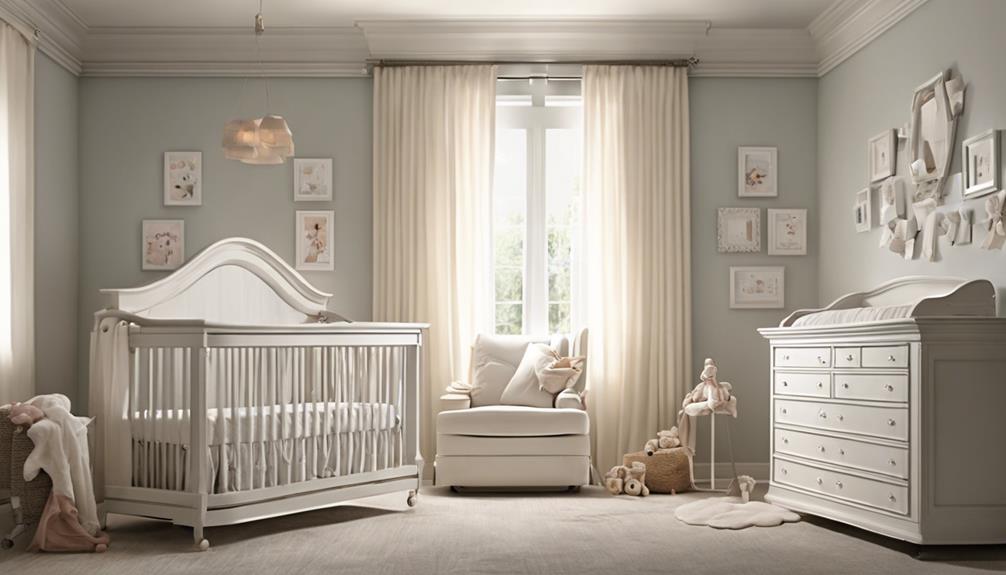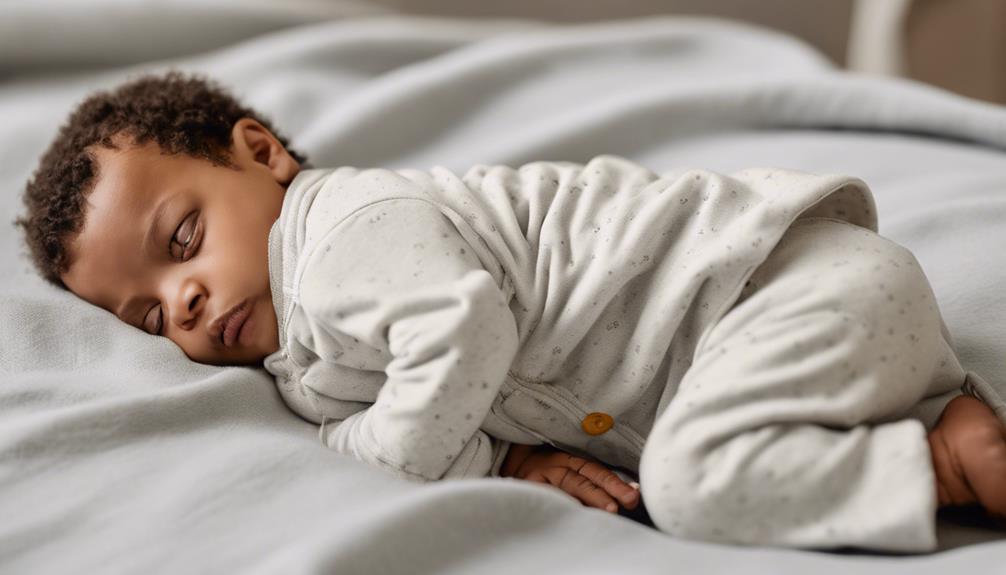Some people may wonder about the fascinating occurrence of babies laughing in their sleep, a mysterious phenomenon that captures attention and brings joy.
Have you ever wondered why these tiny beings chuckle in their slumber? Let's explore the intriguing reasons behind this delightful occurrence and uncover the secrets hidden within the domains of infant dreams.
Key Takeaways
- Newborn laughter during sleep reflects early emotional and social development.
- Laughter in sleep is linked to brain regions processing emotions and dreams.
- Understanding the neurological aspects reveals cognitive growth and joy expression.
- Seeking guidance can differentiate normal chuckling from potential health concerns.
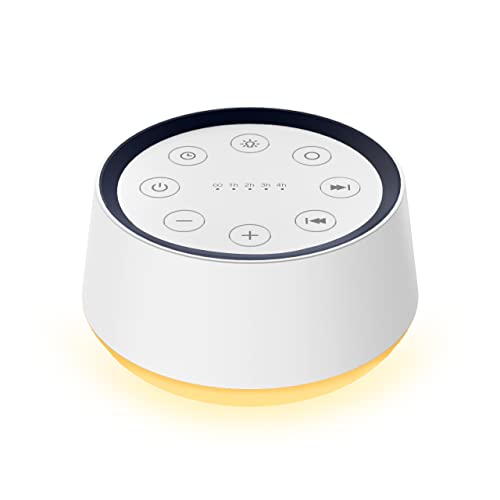
Brown Noise Sound Machine with 30 Soothing Sounds 12 Colors Night Light White Noise Machine for Adults Baby Kids Sleep Machines Memory Function 36 Volume Levels 5 Timers for Home Office Travel
❤[30 Natural and Soothing Sounds] Our white noise machine provides 30 soothing sounds, including 3 Brown noise, 2…
As an affiliate, we earn on qualifying purchases.
As an affiliate, we earn on qualifying purchases.
Scientific Explanations for Sleep Laughter
During the REM stage of sleep, newborns exhibit laughter, a phenomenon controlled by the developing limbic system and linked to various neurological processes. Laughter during sleep in infants is often associated with dreaming and involuntary movements, especially during active sleep phases. The limbic system's involvement suggests that this early laughter may play a role in the emotional and social development of the infant. Additionally, laughter during sleep could be a reflex response to internal stimuli or indicative of the dreaming process in newborns.
However, it's important to note that not all instances of laughter during sleep in infants are benign. Gelastic seizures, a rare form of epilepsy characterized by sudden outbursts of uncontrolled giggling, can also manifest in newborns. When observed, these seizures require immediate medical attention to make sure the well-being of the infant. Understanding the various neurological mechanisms behind laughter during sleep in newborns is essential for differentiating between normal developmental processes and potential health concerns.

VTech VM819 Baby Monitor with Camera and Audio, 2.8” Screen Portable Baby Camera, Night Vision, 2-Way Audio, Temperature Sensor and Lullabies, Secure Transmission No WiFi, Ideal for Baby/Elderly/Pet
Best-in-class Battery Life and Range – With up to 19 hours of video streaming on a single charge,…
As an affiliate, we earn on qualifying purchases.
As an affiliate, we earn on qualifying purchases.
Developmental Significance of Newborn Laughter

Newborn laughter during sleep in response to sensory stimuli signifies a significant early milestone in the emotional and social development of infants. When babies laugh during REM sleep, it's an expression of joy that mirrors their positive emotions even in deep sleep. This phenomenon isn't merely a reflex but rather a reflection of intricate brain activity associated with pleasant experiences.
Peer-reviewed studies have shown that baby laughter during sleep is linked to the activation of brain regions responsible for processing emotions and social interactions. It indicates that even in slumber, infants are engaged in the processing of sensory inputs and dream content, fostering their cognitive development.
This early expression of joy through laughter plays a vital role in promoting bonding with caregivers and developing communication skills from the earliest stages of life. Understanding the developmental significance of newborn laughter during sleep sheds light on the importance of emotional connections in shaping the social and emotional landscape of infants.

Baby Einstein Sea Dreams Soother Musical Crib Toy and Sound Machine, Newborn and up
From Viral TikTok Trend to #1 Best Seller: With over 100 million views on TikTok and counting, this…
As an affiliate, we earn on qualifying purchases.
As an affiliate, we earn on qualifying purchases.
Potential Concerns With Infant Sleep Chuckling

Infant sleep chuckling, although often harmless and primarily occurring during REM sleep, can sometimes raise concerns due to potential underlying conditions like REM sleep behavior disorder, Lewy body dementia, Parkinson's disease, or gelastic seizures.
- REM Sleep Behavior Disorder: Disrupts normal REM sleep functions, leading to actions like talking, laughing, or shouting during sleep.
- Lewy Body Dementia and Parkinson's Disease: Neurological conditions that may manifest with unusual sleep behaviors, including chuckling.
- Gelastic Seizures: Epileptic episodes characterized by fits of laughter and smiling, potentially occurring during sleep.
- Medical Advice: Seeking professional guidance can help differentiate between normal infant sleep chuckling and possible underlying health issues.
While infant chuckling in sleep often signifies joy and contentment, understanding the context and frequency is essential. Differentiating between REM and non-REM sleep chuckling can provide insights into the source of joy or any potential concerns. If worried about your baby's smile during sleep, consulting with a healthcare provider for medical advice and evaluation is recommended.

Guide & Grow: Baby's 1st Year: A Monthly Guide to Development, Milestones and Activities to Support Baby's Development
As an affiliate, we earn on qualifying purchases.
As an affiliate, we earn on qualifying purchases.
Understanding the Neurological Aspects

Exploring the neurological underpinnings of laughter during sleep provides valuable insights into the intricate workings of a baby's developing brain and emotional processing. When babies smile or laugh during sleep, it is a fascinating window into their developing brain functions. During REM (Rapid Eye Movement) sleep, babies may exhibit facial expressions of joy, indicating active dreaming and potential emotional processing. The release of neurotransmitters like dopamine and serotonin during these moments contributes to their feelings of happiness and well-being, showcasing the neurological significance of their laughter during sleep.
To comprehend this phenomenon better, let's investigate the intricate neurological aspects at play:
| Neurological Aspects | Description |
|---|---|
| Smile and Laughter | Reflects emotional processing and cognitive development in babies during sleep. |
| Eye Movement | Rapid Eye Movement (REM) in babies is associated with active dreaming and joyful expressions. |
| Neurotransmitters | Release of dopamine and serotonin contributes to feelings of happiness and well-being. |
| Developing Brain Functions | Laughter during sleep highlights the developing brain functions and imagination in babies. |
| Facial Expression | Expressions of joy during sleep indicate potential emotional processing and cognitive growth. |
Understanding these neurological aspects provides a deeper appreciation for the joy and wonder of a baby's laughter during sleep.
Tips for Encouraging Healthy Sleep Patterns
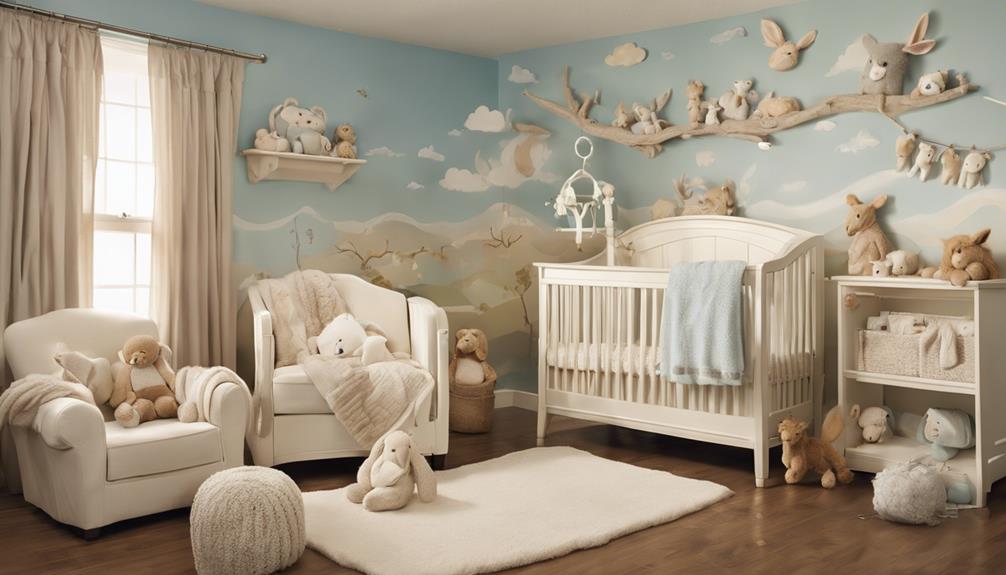
When establishing healthy sleep patterns for a baby, it's important to create a consistent bedtime routine to regulate their sleep and promote restfulness.
Ensuring a calming sleep environment with dim lighting, soothing sounds, and a comfortable temperature can support healthy sleep habits.
Encouraging daytime naps is vital to prevent overtiredness and guarantee that your baby gets enough restorative sleep throughout the day.
Implementing gentle sleep training methods can help your baby learn to self-soothe and fall asleep independently, fostering good sleep habits.
- Establish a consistent bedtime routine
- Create a calming sleep environment
- Encourage daytime naps
- Implement gentle sleep training methods
Frequently Asked Questions
What Does It Mean When Newborns Laugh in Their Sleep?
When newborns laugh in their sleep, it often indicates rapid eye movement (REM) sleep, associated with dreaming. This can be a normal part of their development, showing early signs of social and emotional growth.
Why Do Newborn Babies Smile While Sleeping?
We smile in our sleep as newborns to express joy and contentment. It's a natural response to pleasant dreams and secure feelings. This helps parents understand our needs and emotions, strengthening our bond with them.
What Do Newborns Dream About That Makes Them Smile?
We believe newborns smile during sleep due to pleasant dreams. These dreams may evoke feelings of comfort and security, reflecting their instinctive need for warmth and care. Their smiles likely stem from a sense of contentment and well-being.
Can a 2 Week Old Baby Giggle?
Sure, at 2 weeks old, babies can display reflexive smiles, but purposeful giggling typically emerges later. Newborns' laughter during sleep may be reflexes. It's fascinating to observe their early developmental stages.
What Causes Newborns to Laugh and Smile During Sleep?
During sleep, adorable newborns smiling moments can occur due to a variety of reasons such as contentment from a recent feeding, feeling warm and secure, or experiencing a pleasant dream. These smiles and laughs are endearing glimpses into the inner world of a baby’s developing emotions and subconscious.
Conclusion
To summarize, the enigmatic phenomenon of newborns laughing during sleep remains a fascinating subject of study. While the exact reasons behind this behavior are still being explored, it serves as a heartwarming reminder of the intricate workings of the developing brain.
As researchers continue to investigate the complexities of infant sleep patterns, we're left in awe of the mysterious beauty that lies within the slumbering minds of our little ones, like a celestial dance of neurons in the night.


